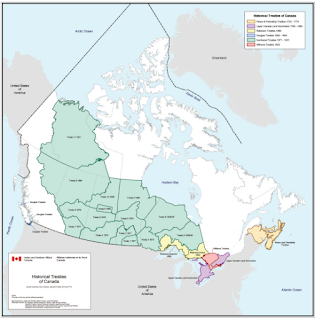I added the following as a comment to a YouTube video. I find it interesting and I learn from people who I wouldn't normally hear from, and who have ideas ideas I don't agree with.
For a different take that is closer to my own thinking, check out MEDIA INDIGENA : U.S.A. R.I.P. ?Interesting ideas, but I think there was a core issue not included.
Canada is a Constitutional Monarchy, meaning the constitution which was passed by British (11 British North America Acts, and then the Canada Act 1982) are a stand-in for a monarchy. This isn't how Canada describes it, and it claims it is more like the British which has a living monarchy. Given the deliberate modifications of the amending formula for Canada's Constitution when the British relinquished the right to change Canadian law in 1982, the Constitution is nearly impossible to change. That document is now the real head of Canada rather than the federal and provincial parliaments which are restricted by the Constitution. Canada isn't the democracy people think it is, and the current "leadership" doesn't have the authority to change any laws they wish.
This comes into play with your discussion of the Wet'suwet'en government and their representatives, which are not European-style top-down hierarchical. Indian Act band councils are part of the Canadian Federal bureaucracy, delegated power that the federal government is granted in section 91 of the Constitution. Section 91 grants the federal government jurisdiction over "24. Indians, and Lands reserved for the Indians." These Indian Act bureaucracies do not have jurisdiction over land outside of reservations, or any other authority not delegated to them by the federal government, and thus do not have the legal authority to authorise the activities which some claim they have. Some entity having an "election" is not sufficient for it to legitimately be considered a democracy -- far more is needed.
The oldest Participatory Democracy on the planet is the Haudenosaunee Confederacy, so it isn't correct to believe that there aren't working governments on this continent other than those which European settlers brought with them. Whether other governments acknowledge their jurisdiction is separate from recognizing their existence.
For Six Nations of the Grand River, the Confederacy exists in parallel with the Six Nations Elected Council (SNEC), the latter imposed by Canada through force carried out by the RCMP in 1924. Why? Because that elder League of Nations went to the younger League of Nations forming in Europe to gain full membership. The European League of Nations became the United Nations, and appropriate membership of the Haudenosaunee Confederacy is still being denied.
It is the Confederacy that is a democratic government, while SNEC is merely a group of Canadian federal bureaucrats : the bureaucrats may do good work, but are not part of an Indigenous government. To understand what an Indian Act band council is requires people read the Canadian Constitution, Charter, and Indian Act.
Part of the 1982 changes is section 25 of the Canadian Charter which clarifies that the Royal Proclamation of October 7, 1763 is part of Canadian law, and section 35 of the Canadian Constitution that clarifies treaties as part of Canadian Law. Treaties are with nations, so that clarifies in Canadian law that Indigenous Governments must be treated as separate nations from Canadian federal and provincial governments.
British Columbia, similar to large parts of Quebec, lack treaties and thus come into conflict with the Royal Proclamation when trying to determine which bodies have jurisdiction to make certain decisions. Again, Canada is a Constitutional Monarchy, so exactly what the Canadian Constitution says really matters.
Individuals can believe Canada is a republic, and that everything is up for the government debate, and that these legal documents don't matter. That isn't true, and that will always cause confusion and problems. I agree there is a division between the East and West on this continent, just as there is in Europe and should be expected for a continent this size. I think it is an oversimplification to suggest the division is "left" vs "right", a concept that hasn't offered much clarity outside the French Revolution.
European settlers have had two civil wars so far on this continent, largely along north-south divisions. The separatists lost the second civil war, so that second one isn't being called a "War of Independence" by anyone. I doubt the next civil war will play out that way -- it is far more likely that east-west will be how things divide. I have watched the growing tension over my lifetime, and I believe another civil war is inevitable -- just not the one people who believe the current imaginary line is fixed believe it will be. There are too many smug Canadians that believe what happens in the United States is somehow disconnected from them. That British separatist/loyalist division from that first civil war is further in the distant past than people seem willing to recognize.
The fact that Canada is a Constitutional Monarchy and few Canadians are even aware of the contents of Canada's Constitution will likely cause a collapse of "Peace, Order, and good Government of Canada" (to again quote from section 91 of the constitution). I noticed that in the "Freedom Convoy", where there was a lack of understanding of jurisdiction and the fact that the federal government had little to do with the issues people were protesting.

No comments:
Post a Comment